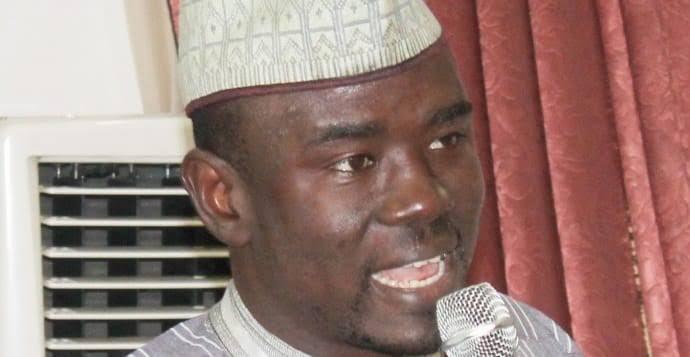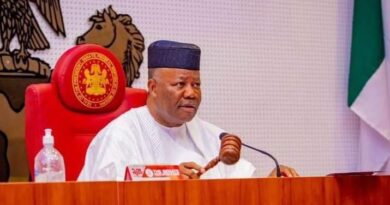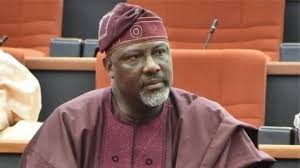Waters That Run Deep: Untold Stories Of Nigeria’s Water Sector
By Yushau A. Shuaib
I didn’t realise how much Nigeria’s water sector has been grossly under-reported until I attended a media briefing addressed by the Minister of Water Resources, Engineer Suleiman H. Adamu in Abuja recently. Mrs Kenechukwu Offie, a fellow of the Nigerian Institute of Public Relations (NIPR) and the Director of Public Relations in the Ministry, had made several efforts to stoke my interest in the water sector for possible media coverage in our Economic Confidential or PRNigeria platforms.I had worked closely with Mrs Offie, my senior while I was in the public service and after my retirement a decade ago.
I always wondered what was so exciting for her about the Ministry of Water Resources, particularly after she had served in a number of ‘juicy’ positions in the State House, Aso Rock, Abuja; the Office of the Sustainable Development Goals (SDGs), during the tenure of Mrs Amina Mohammed (now Deputy Secretary General of United Nations); and the Office of the Accountant General of the Federation, among others. Therefore, last Thursday, she invited me again to attend a press brief, where some milestones in the water sector under President Muhammadu Buhari’s administration were to be revealed with facts and figures, I finally decided to honour her requests. She had early told me that the Minister was a pragmatic leader who deliberately refused to abandon inherited projects, as he essentially regards government as a continuum for which the public good is paramount and the overriding consideration, not personalities.
With this crucial mindset, Engineer Adamu has not only improved on ongoing programmes within his remit, but has more so ensured the completion of most of the old projects he inherited on coming into office. At the briefing, the Minister proudly emphasised his strong conviction on how it was a vital professional imperative for him to make sure he completes all inherited projects before engaging in newer ones.
This is a highly unusually and largely commendable attitude to enhancing the Nigerian commonwealth and infrastructure for the greater good, particularly in an environment in which many are prone to the individualism – if not selfishness – of executing only projects that they are architects of, and which serves interests with which they are identified, without much contemplation of what is really of enduring benefit to the public.
As such, the entire country almost feels like a dumpsite of uncompleted, and even overlapping, projects that have been some of the biggest sources of wastage of the national commonwealth, very unfortunately.
Engineer Suleiman pointed out that being one of the key sectors that drive the agenda for national food security and human capital development, the Ministry of Water Resources’ core mandates are to improve the supply of potable water in the country, the improvement of irrigation systems to bolster what could otherwise be low-yield rain-fed agriculture, and the development of Nigeria’s hydro-power infrastructure.Beyond the controversy over the Water Bill that was criticised by politicians and sections of the media, I was amazed by the accomplishments of the Ministry in its core mandates.
Apart from the construction of 185 solar-powered water projects and 370 public sanitation facilities across the states of the federation, the Ministry engaged 77,400 youth volunteers for Hand Washing and ODF campaigns, which also created awareness on open defecation in Nigeria, across all the 774 local government areas of the country.With the revitalisation of the River Basin Development Authorities to deliver on their obligations to Nigeria, the Songhai model of integrated agricultural practice was introduced by the Ministry to boost agricultural production and achieve integrated rural development. In this regard, 253 farmlands have been leased to the private sector for commercial farming, out of which 182 are fully utilised presently.
Currently, there are a total of 250 medium- and large-sized dams in the country, with a combined storage capacity of about 30 billion cubic metres, of water, which is more than the projected future demand of Nigeria by the year 2030.
Some of the inherited and now completed dam projects include the Kashimbilla Multipurpose dam in Taraba State; Ogwashi-uku Multipurpose Dam in Delta State; Adada Dam in Enugu State; Sulma Earth Dam in Katsina State; Amla-Otukpo Dam in Benue State, alongside four others dams, and the rehabilitated Kampi Omi Dam in Kogi State.In addition to the above, at least about 42 small dams have been constructed across the nation by the River Basin Development Authorities, while six of the dams are currently being utilised to support aquaculture farms.
In the energy sector too, the Ministry of Water Resources has also pursued the goal of ensuring the completion of inherited hydropower projects. So far, these include the Gurara One 30MW power plant in Kaduna State; the Kashimbila 40MW project in Taraba State; and the Daduin Kowa 40MW power project in Gombe State, which have all been completed and are ready for concessioning, while the contract for the Farin-Ruwa 20MW hydropower project in Nasarawa has been awarded.
There are two other power projects that would generate a combined 1,750MWs of electricity in Lokoja, Kogi State and Makurdi in Benue State, which are currently being planned for development on Build, Operate and Transfer (BOT) arrangements.In similar vein, the Ministry is implementing an ambitious irrigation programme to boost agriculture production and support the nation’s quest for food security. Under the scheme, a 130,000 hectarage of irrigation has been developed, while another 55,000 hectarage has been leased to commercial farmers. Some of the completed irrigation projects include the Mamu Awka Drainage and Land Reclamation scheme in Anambra State; the Sabke Irrigation system in Katsina State; the Gari Irrigation schemes in Kano and Katsina States, coupled with the Rima Valley Irrigation project in Sokoto State, the Middle Ogun River Irrigation scheme in Oyo State and the Azare-Jere Irrigation project in Kaduna State.
Likewise, the Ministry of Water Resources has constructed 340 rural water supply schemes in the North-East, in IDP camps and some federal institutions and establishments. Through the implementation of the Partnership for Expanded Water Sanitation and Hygiene (PEWASH) programmes, the Ministry constructed 3,372 rural water supply schemes in 19 states of the federation for the benefit of 5,262,189 people.
I am just been a bit concerned that even though all the states flagged off the WASH and Clean Nigeria campaigns, surprisingly only 83 out of the 774 local government areas are now Open Defecation Free in the country!
Nevertheless, the water projects executed by the Ministry will go a long way in reducing dependency on the erstwhile largely rain-fed agricultural sector, thereby boosting food production, addressing rural poverty through progressive management transfers and, to some extent, curbing youth restiveness due to joblessness.
As the longest-serving Minister of Water Resources since 2015, I wish to reiterate the fact that Engineer Suleiman deserves to be commended for not abandoning old projects within his sphere of influence while initiating and implementing new ones geared toward economic diversification, job creation, and strengthening the quality of productivity by enhancing market access services for farmers. This certainly appears to be the secret to his longevity on the job – as we say: Why fix it when it is performing so well?
Yushau A. ShuaibEditor-in-Chief Economic Confidential and blogwww.YASHuaib.com




